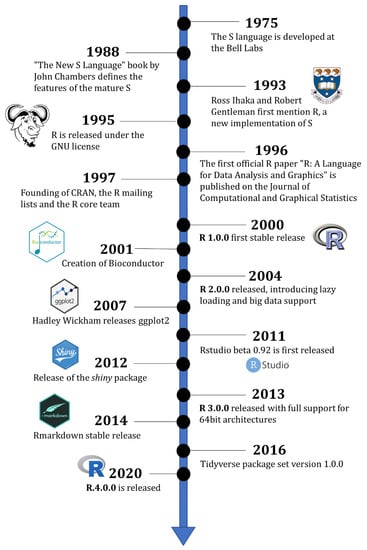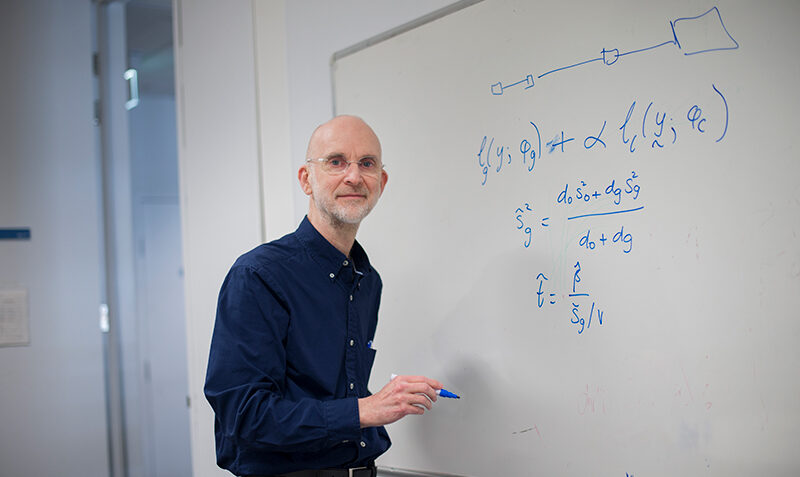Some Ideas on Bioinformatics Tutor You Need To Know
Some Ideas on Bioinformatics Tutor You Need To Know
Blog Article
Getting My Bioinformatics Tutor To Work
Table of ContentsThe Ultimate Guide To Bioinformatics TutorThe smart Trick of Bioinformatics Tutor That Nobody is Talking AboutAll About Bioinformatics TutorThe Basic Principles Of Bioinformatics Tutor What Does Bioinformatics Tutor Do?
Of the overall individuals associated with the training, 80% were pupils from public greater education organizations, while the continuing to be 20% originated from exclusive establishments. To get approved for a certification of engagement, students were called for to attend at the very least 90% of the total training hours. As a result of this demand, a remarkable 95% of the individuals effectively obtained their certificates, having not just satisfied the minimum participation standards yet additionally finished all designated tasks throughout the training.
During the elevation of the COVID-19 pandemic, specifically between June and August 2020, the task group was entrusted with organizing specialized training in bioinformatics. This training was especially focused on trainees from the study team Center for Research study in Applied Computer at the Federal College of Pará (UFRA) The adjustment to remote understanding systems because of the pandemic produced an opportunity to check out brand-new training methods and digital devices that enhanced both reach and efficiency.
This program was created to supply an available yet thorough summary of Artificial Intelligence strategies, specifically as used in bioinformatics (Bioinformatics Tutor). This virtual layout enabled participation from pupils across Brazil, several of whom may not have had the chance to attend in-person sessions.
The Greatest Guide To Bioinformatics Tutor
Roughly 50% of the total training hours were dedicated to functional tasks where trainees built intelligent designs and applications in a variety of scientific domain names, consisting of genetics, molecular biology, and ecological information evaluation. These systems enabled pupils to engage in real-time information adjustment, version training, and formula experimentation.
The program attracted 80 individuals in total amount. Sixty of them were associated with different college organizations in the state of Pará, while the remaining twenty originated from organizations situated in 5 various other Brazilian states. This broad geographical depiction highlighted the national interest in bioinformatics and the growing need for specialized abilities around. By presenting Artificial Intelligence in a pertinent and practical context, the initiative served to connect the space in between concept and real-world application, offering pupils with a solid foundation for future research or work in the field.
The training campaign developed component of a broader scholastic outreach effort known as the Bioinformatics when traveling project. This task has, over the years, presented lots of pupils to the globe of bioinformatics and computational biology. The occasions held under this umbrella campaign have taken area across several areas and years, as summarized in Table 1 (List of events, locations, years, and total varieties of trainees and teachers)
Numerous of these groups, initially brought with each other by their engagement in training occasions, have given that gone on to produce independent clinical research study in cooperation with regional academic establishments. The training not just fostered clinical thinking within the context of bioinformatics however likewise stimulated collaborative partnerships that prolonged beyond the training atmosphere.
Getting The Bioinformatics Tutor To Work
The exact same group, excluding IH and RR, also acted as tutors for the useful training components. Financing for the job was provided via the give 88887.200562/ pop over to these guys 2018-00 from CAPES.
The Federal University of Pará's Workplace of Research (PROPESP/UFPA) additionally provided financial backing, particularly for the production of the final manuscript. The writers state no economic or industrial problems of interest that can have influenced the research. Additionally, all analyses and viewpoints revealed in this short article are entirely those of the authors and do not always mirror those of their corresponding establishments, the author, editors, or reviewers included in the publication process.

8 Easy Facts About Bioinformatics Tutor Explained
From a pedagogical viewpoint, the training approach utilized in the training was intentionally interactive. Classes were conducted in a manner that urged student engagement and conversation, going beyond memorizing memorization to discover how concepts are developed, applied in every day life, and evaluated in academic settings. The training viewpoint concentrated on nurturing both strong and battling trainees, providing customized support, and structure self-confidence via continual mentorship and patience.

Each team, containing around 36 individuals, was sustained by 3 coaches-- a lot of whom were postdoctoral scientists with specific know-how. These advisors not only assisted create the group tasks yet also promoted their execution, ensuring that each research study concern was both suitably challenging and pertinent. The goal was to provide a naturally sensible context that participants could check out via flexible goals and accessibility to curated datasets.
For extra insights right into the method and results of this project-based understanding method, viewers are routed to S1 Text, which consists of in-depth summaries of the pedagogical structure, analysis methods, and project styles made use of in the training sessions.
Fascination About Bioinformatics Tutor
Of the overall participants involved in the training, 80% were trainees from public higher education organizations, while the continuing to be 20% came from personal establishments. To qualify for a certificate of participation, students were needed to attend at the very least 90% of the total training hours. anonymous Especially, beyond the trainees that enlisted in the training sessions, seven experienced teachers took part in delivering the courses, while three devoted study teachers worked with the overall training procedure. About 50% of the complete training hours were committed to useful tasks where pupils developed intelligent designs and applications in a variety of scientific domains, consisting of genetics, molecular biology, and ecological data analysis. The training not just cultivated clinical thinking within the context of bioinformatics but additionally triggered joint relationships that expanded past the training setting.
Report this page